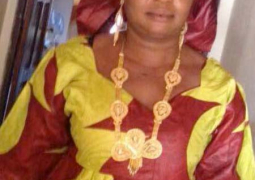She is a symbol for girls across Africa of the great heights that can be achieved through quality education.
Born and raised in the Gambia before studying law in Nigeria and Malta, she quickly became her home country’s first expert in international maritime law.
Her career took a significant turn when she was appointed as Legal Adviser and Trial Attorney at the International Criminal Tribunal for Rwanda, rising through the ranks in just two years to become head of their Legal Advisory Unit.
This high-profile appointment soon led her to a role at the International Criminal Court (ICC), as Deputy Prosecutor and by 2011 she was sworn in as Chief Prosecutor – the first African to hold a top position at the ICC.
Of her distinguished role Bensouda has told BBC World Service : “I have come to actually believe that this is just my calling.”
Top marks for being confident, self-assured and awe-inspiring.
As Chief Prosecutor, Bensouda’s job is to chase down individuals accused of the most serious crimes of concern to the international community, such as genocide, crimes against humanity and war crimes.
It often steps in when domestic courts and prosecutors have failed.
Her appointment has been welcomed by those in the legal profession, and among NGOs. The ICC has been criticised in the past, particularly by the African Union, for its overwhelming focus on cases in Africa. Bensouda’s background and deeper understanding of the continent can be seen as an advantageous trait for someone in this position.
This year she has opened preliminary probes into alleged crimes in Palestine, broadened the scope of an initial inquiry in Ukraine, and has asked the ICC to open a formal investigation into the 2008 Russia-Georgia war. What a list of achievements for 2015!
Bensouda is frequently praised for her diligence and compassion:
“She always struck us a very thoughtful person of great intellect,” says Human Rights Watch senior counsel Liz Evenson.
Bensouda has spoken of having a particular passion for cases which affect women and girls. She discusses her decision to go into law to help these groups.
Asked how she deals with policing the world’s worst crimes, Bensouda has said: “You cannot completely separate yourself from what you are doing because these aren’t statistics. Sometimes you talk about 1,000 people died, 100 people died. And people just think about the numbers. But these are lives of people. These are lives of mothers of sisters or friends.”
“We should be able to do something to give them a voice.”
The story of Fatou Bensouda, her success, compassion and humanity, should urge us all to push for the success of Global Goal #4 – Quality Education and Global Goal #5 – Gender Equality .
Who knows what new generations of African girls can go on to achieve if they are given a voice – or a louder voice – by securing these vital objectives?


